Reasons to Drink Japanese Matcha Green Tea
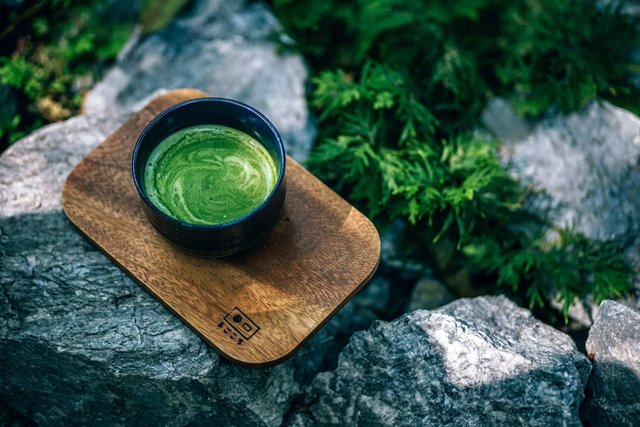
Why is green tea good for your health? There are many reasons for this, and since the beginning of the 2000s, green tea has benefited from more and more scientific studies.
This confirmed and documented scientific literature has continued to grow and focus on EGCG, the most abundant flavanol (catechin) in green tea.
Famous for their many virtues, green teas are unoxidized teas. This technique makes it possible to obtain teas with a wide variety of flavors and preserve the bioactive principles of each tea. The processing stages (roasting, rolling, drying) are slower than those of black tea.
Because of its simplicity of preparation and its natural origin, green tea is recognized worldwide as the most nutritious and beneficial drink after water.
On the other hand, this popularity is not without asking questions about the reality of the quality of what is sold in the trade.
Some brands, often inferior, contain in particular excess fluoride. Even organic teas can contain traces of pesticides and potentially harmful metals.
This is even more likely when the tea you consume is in a bag or "ready to drink", often from China or India.
To enjoy the benefits of different teas (green tea, black tea) green minimizing the risks, it is best to consume tea in bulk, know the origin of your tea and prepare it in good conditions.
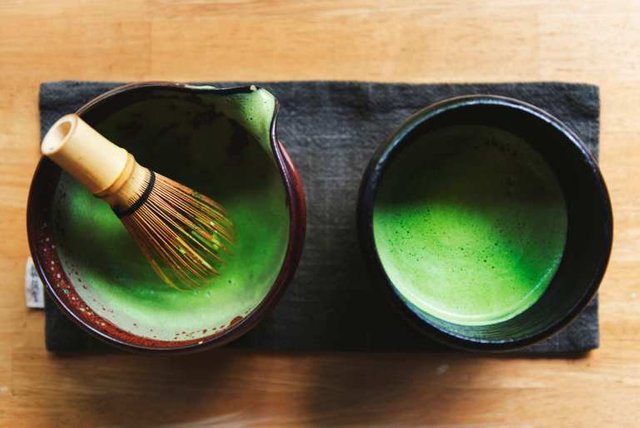
Japanese green tea from certain regions is to be preferred, because thanks to the rigor of the farmers and the precision of their know-how, they know how to obtain great wines.
Concerning the risks of radioactivity, many pointed controls considerably limit the possibility of consuming contaminated teas.
However, it is strongly recommended to focus specifically on green teas in the Kyoto region (Uji) and Kyushu (Fukuoka, Yame, Kumamoto, Miyazaki, Kagoshima), which have never been tested at abnormal levels, and are far from the disaster of 2011.

Jimmy from Health Nutrition Blog, Matcha San Akim and Kumiko Matcha Valentine discover a tencha in Yame (Japan).
To go further, you can consult on the website of the Ministry of Health, Labor and Social Affairs (Ministry of Health, Labor and Welfare) of the Government of Japan official documents on the levels of radioactive contaminants in food tested in respective prefectures. As of the writing date of this article, the last official report was published on December 28, 2018.
In addition, the storage of tea or the temperature of the tea are key elements to preserve the virtues. The virtues of tea can differ depending on its origin, its preparation or depending on the brewing time and the temperature of the water.
Japanese teas benefit from a very high quality of processing, storage and transport from the actors in this sector.
In this way, it is advisable to carefully pursue this principle by procuring a tea box for storage and to store your tea in the best possible conditions if you want to guarantee the quality of the bioactive compounds of your green tea.
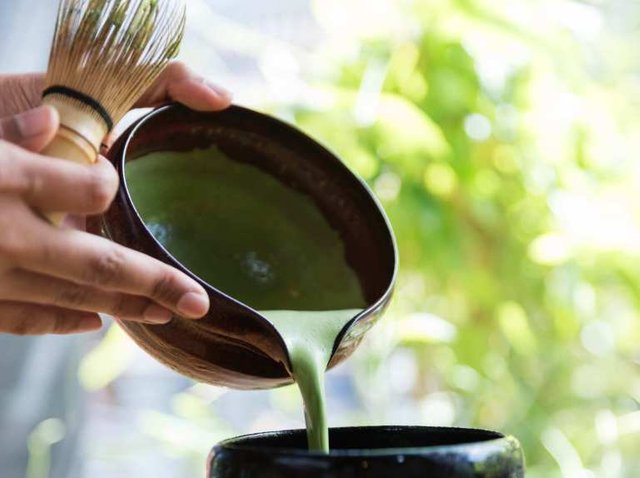
GREEN TEA BIOACTIVE COMPOUNDS IMPROVE HEALTH
Green tea contains many compounds derived from parts of the plant, including leaves, that actually contribute to all the benefits of green tea.
Green tea has a high level of polyphenols recognized as anti-inflammatory and anticancer.
Catechin tea is a natural antioxidant that prevents the destruction of cells and has the ability to slow the development of free radicals.
The presence of EGCG (epigallocatechin gallate), which prevents various diseases, is equally essential.
In Japan, in a study published in 2006, involving more than 40,000 adults, those who ingest the largest amount of green tea, about 5 cups or more a day, had a systematic chance to live another 11 years.

Finally, the different studies carried out in the last two decades tell us a great deal about the different virtues of green tea.
The benefits are even more beneficial with matcha green tea, a variety of exclusively Japanese tea.
Indeed, since matcha is consumed entirely (it is a powder of green tea whipped in water), we can say that it is drunk and eats, and is not a simple infusion .
This way of consuming green tea makes it possible to take maximum advantage of the benefits, but it also requires to be attentive to the quality of the matcha.
13 REASONS TO DRINK MATCHA GREEN TEA

① GREEN TEA IS GOOD FOR THE SKIN
Matcha green tea is good for the skin. The matcha is filled with catechins, EGCG, a type of flavonoid that is full of antioxidants that our skin needs to relieve inflammation and, in doing so, minimize redness and puffiness.

② GREEN TEA ACTS AGAINST METABOLIC DISEASES
The polyphenols in green tea act against metabolic diseases. EGCG blocks the formation of toxic amyloid structures.
The compounds found in green tea - just like in red wine - are known as polyphenols. They can block the formation of toxic metabolites.
This discovery paved the way for research for therapies in the treatment of congenital metabolic disorders.

③ THE MAIN CATÉCHINE OF GREEN TEA IMPROVES MEMORY
Epigallocatechin gallate (EGCG), a potent antioxidant that is the main catechin (a polyphenol) found in green tea, would be able to combat memory impairment, and improve resistance to brain insulin.
In addition to caffeine, green tea also contains an amino acid. L-Theanine is an amino acid that enhances the brain and functions of the inhibitory neurotransmitter GABA. Dopamine is more effective and the development of alpha waves in the brain is optimized. Many people have reported an improvement in energy stability with regular green tea consumption compared to coffee.
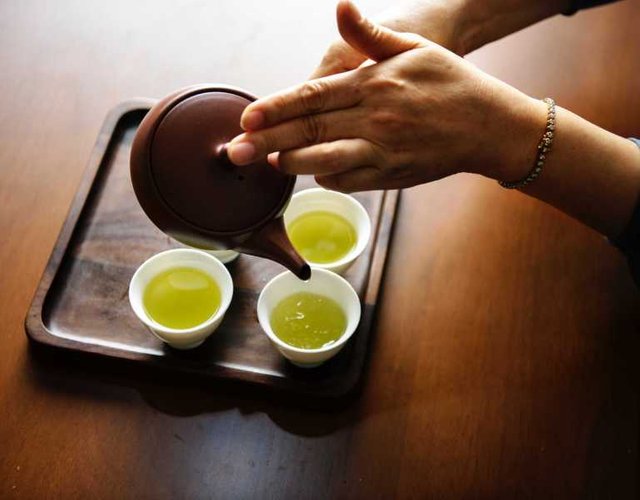
④ GREEN TEA BOOSTE FAT COMBUSTION
Caffeine is an ingredient often described as an actor in the burning of fat. There is also evidence of its ability to boost metabolic rate in controlled trials in humans.
In a related study of a dozen men, it was found that green tea improved energy by 4%. Fat oxidation was increased by 17% in another similar study involving the ability to burn fat. Improvement in physical activity, energy availability and performance improvement of about 10 to 12% have been associated with caffeine in green tea.
Another study conducted in 2018 reveals that matcha green tea improves the oxidation of fat particularly especially in women.

⑤ THE ANTIOXIDANT COMPONENT REDUCES THE RISK OF CERTAIN TYPES OF CANCER
Considered the leading cause of death in the world, cancer is unconstrained cellular growth. Oxidative damage has been recorded as a cancer factor.
However, the antioxidant component acts as a preventative mechanism. Green tea is an exceptional antioxidant. As a result, it reduces the risk of cancer, including breast cancer, prostate cancer and colorectal cancer.
A meta-research survey found that women who ingest green tea were 20% to 30% less likely to get breast cancer. A related study found that men who drank green tea frequently were 48% less likely to get prostate cancer. In another study, 43% of the odds of not developing colorectal cancer were in those ingesting green tea.
Apparently, those who eat green tea are less likely to be affected by cancer, whatever it is. However, further research is needed to verify existing results. Green tea will absolutely protect you from nothing and remains an element contributing to a better state of well-being.

⑥ GREEN TEA PROTECTS BRAIN AGAINST ALZHEIMER'S DISEASE AND PARKINSON'S DISEASE
The health benefits of green tea have been widely promoted and it has been known for some time that EGCG can alter the structures of amyloid plaques associated with Alzheimer's disease.
Studies show that catechin from green tea has a protective impact on neurons and reduces the risk of Alzheimer's and Parkinson's. A study from McMaster University (Canada), published in October 2017, provides new arguments for the ability of EGCG (epigallocatechin gallate), a green tea compound, to combat and disrupt the formation of neurotoxic species.

⑦ GREEN TEA IS GOOD FOR DENTAL HEALTH
Caffeine in green tea destroys bacteria, improves dental health, and reduces infections. In addition, the benefits of green tea on the oral flora are also shown against the cancer of the mouth.
The biological consequences of catechin from green tea show results from related studies where green tea helps destroy bacteria, and hinder viruses such as the flu virus and reduce the risk of infection.
Bacteria such as Streptococcus mutans (Gram-positive cocci bacteria), which is home-based, are the main cause of cavities. A related study has also shown that catechins hinder the development of Streptococcus mutans. Green tea is therefore related to improving the health of teeth and reducing the risk of infection.
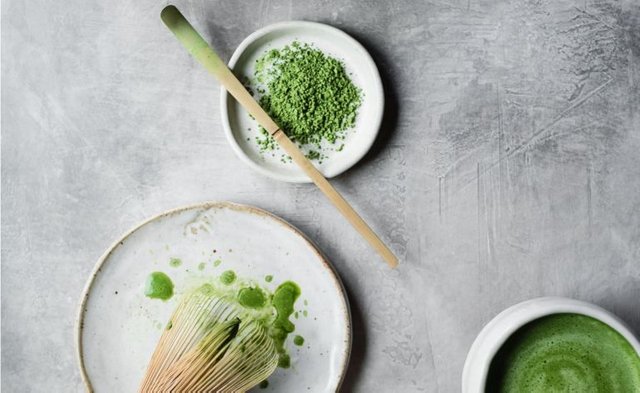
.
⑧ RISK OF DIABETES TYPE 2 REDUCED
Type 2 diabetes is a widespread disease that affects many people around the world. Typical symptoms of this condition include elevated blood sugar levels and an inability to produce insulin. Signs of insulin improvement and low blood sugar levels have been associated with green tea. Similarly, a related study showed a 42% lower risk probability of type 2 diabetes.
However, a study published in December 2018 in International Journal of Epidemiology reveals that pesticides contained in green tea leaves increase the risk of type 2 diabetes. As noted in the article introduction, the quality of tea should be optimal. Tea in a bag, bottled (ready to drink), and current teas from China and India are at risk. Concretely, drinking tea today is a process that takes a little time and costs money. A good tea should be chosen with a little rigor and in general the cost is higher than a supermarket tea.

⑨ GREEN TEA REDUCES THE RISK OF OBESITY
The main catechin of green tea fights obesity. In the short term, green tea increases the body's metabolic rate. The metabolism helps you lose weight.
Studies have established the relationship between fat reduction in the body, especially in the abdominal area and green tea consumption. In a randomized 12-week period in 240 men and women, the green tea cohort witnessed a remarkable reduction in fat, waist circumference and belly fat.

⑩ GREEN TEA REDUCES THE RISK OF CARDIOVASCULAR DISEASE
Cardiovascular disease, heart disease and stroke are one of the leading causes of death in the world. Green tea boosts certain risk factors, including cholesterol, triglycerides and LDL cholesterol

⑪ GREEN TEA REDUCES RISK OF HEART CRISIS
According to a study published May 31, 2018 in the Journal of Biological Chemistry, green tea could be the key to preventing deaths from heart attacks and strokes caused by atherosclerosis.
Scientists from Lancaster University and the University of Leeds (UK) have discovered that a compound present in green tea, currently being investigated for its ability to reduce amyloid plaques in the brain in Alzheimer's disease. Alzheimer's, breaks down and dissolves the potentially dangerous proteins present in the blood vessels.
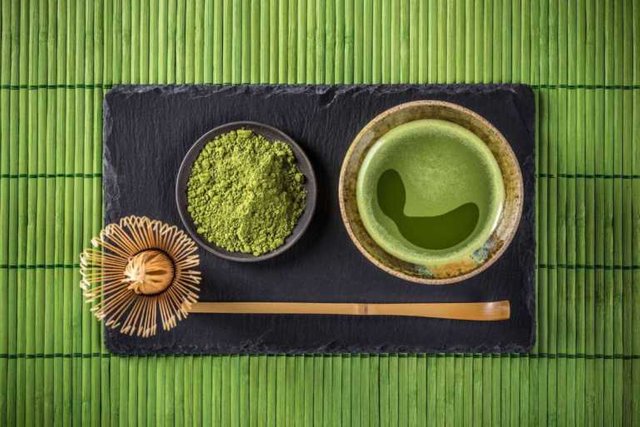
⑫ GREEN TEA PRODUCES EPIGENETIC CHANGES
Drinking tea produces epigenetic changes in women. Epigenetic changes are chemical changes that eliminate or reverse our genes.
In a new study from Uppsala University (Sweden), researchers show that tea consumption in women leads to epigenetic changes in genes that are known to interact with cancer and estrogen metabolism. The results are published in the journal Human Molecular Genetics (Oxford Academic) of May 23, 2017.
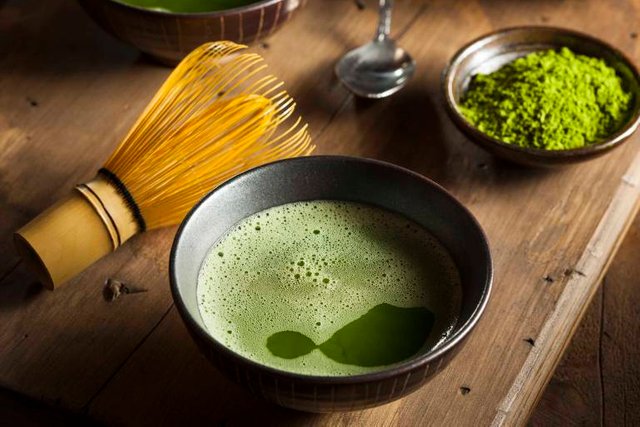
⑬ HOT GREEN TEA REDUCES THE RISK OF GLAUCOMA
Drinking hot tea every day is linked to a lower risk of glaucoma. Indeed, drinking a cup of hot tea at least once a day may be linked to a significantly lower risk of developing glaucoma, according to a study published in 2017 by the British Journal of Ophthalmology.
SOURCES
- "Green tea consumption and risk of type 2 diabetes in Chinese adults: the Shanghai Women's Health Study and the Shanghai Men's Health Study. "International Journal of Epidemiology, Volume 47, Issue 6, December 1, 2018, Pages 1887-1896, https://doi.org/10.1093/ije/dyy173, https://academic.oup.com/ije/article- abstract / 47/6/1887/5086723
Our tea bags contain up to 17 pesticides and several traces of metals, according to "60 million consumers", https://www.francetvinfo.fr/monde/environnement/pesticides/nos-sachets-de-the-contient- up-to-17-pesticides-and-more-trace metals-to-60-million-according-to-consommateurs_2456426.html - "Green tea consumption and mortality due to cardiovascular disease, cancer, and all causes in Japan: the Ohsaki study. , JAMA. 2006 Sep 13; 296 (10): 1255-65., Https://www.ncbi.nlm.nih.gov/pubmed/16968850
- "Green Tea Consumption and Mortality among Japanese Elderly People: The Prospective Shizuoka Elderly Cohort. Annals of Epidemiology, Volume 19, Issue 10, October 2009, Pages 732-739, https://www.sciencedirect.com/science/article/pii/S1047279709001653
Efficiency of a green tea extract in catechin polyphenols and caffeine in increasing 24-h energy expenditure and fat oxidation in humans. ", Am J Clin Nutr. 1999 Dec; 70 (6): 1040-5., Https://www.ncbi.nlm.nih.gov/pubmed/10584049 - "Green tea extract ingestion, fat oxidation, and glucose tolerance in healthy humans. ", Am J Clin Nutr. 2008 Mar; 87 (3): 778-84., Https://www.ncbi.nlm.nih.gov/pubmed/18326618
Effects of caffeine ingestion on exercise testing: a meta-analysis. Int J Sport Nutr Exerc Metab. 2004 Dec; 14 (6): 626-46., Https://www.ncbi.nlm.nih.gov/pubmed/15657